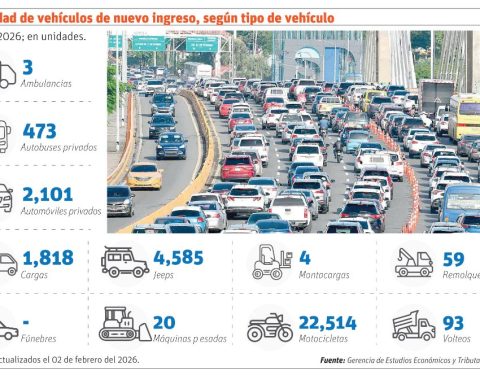From January to September 2024, a total of 730,009 people accessed technical courses in the country. Of these training courses, women represented the majority, 407,238 participants, equivalent to 55.79%, according to statistics from the National Statistics Office (ONE). ).
The largest number of participants was in the July-September quarter of this year, with a number of 301,232, equivalent to 41.06% of the total.
Likewise, of the total number of participants, 390,076 (53.43%) accessed through programs with companies, representing the majority, compared to the 118,837 (16.28%) who accessed through community programs, 108,610 (14.88%) through fixed centers, 90,566 (12.41%) through operational centers and 21,920 (3%) through institutional agreements.
While, in a report from the National Institute of Professional Technical Training (Infotep) it was revealed that, among the 36 most requested training actions, the one that had the most demand between January and October of last year was “Basic operations of office programs”, with 9,957 participants, representing 9.59%.
This was followed by Nursing Care, with 8,941 students (8.61%); Customer service, with 7,897 (7.60%); Emotional Intelligence, with 6,542 (6.30%) and First Aid, with 6,542 (6.30%). In the first four, women represented the largest bulk of the population.
The last three on the list of most in-demand offers are Interpersonal Relations, with 1,029 participants (0.99%), Fire Extinguisher Management, with 1,003 students (0.97%), and Personal Finance, with 999 (0.96%).
Rafael Santos Badía, director of Infotep, highlighted that in the last four years the institution has trained approximately 2.6 million people in various technical areas. In addition, he highlighted this year’s effort to incorporate technology as a complement to technical training.
Santos Badía also emphasized the importance of adjusting training actions to the demands of the labor market, identifying the areas of greatest growth in terms of employment and the regions where these profiles are required.
“Today’s Infotep is prepared to meet both the needs of the productive sectors and those with a vocation towards employability,” he stated.
Labor demand
In an interview published in mid-2024 in Diario Libre, Emmanuel Blanc, president of the Dominican Association of Human Management Administrators (Adoarh), explained that the labor market requires professionals capable of quickly adapting to changes and functioning effectively in digital environments. .
Blanc pointed out that there are areas with growing demand, such as information technology, cybersecurity, digital marketing, data analysis and project management. Furthermore, he stressed the need to update educational programs so that they are aligned with these emerging demands.
However, two years ago, the National Association of Young Entrepreneurs (ANJE) published a report titled Training of Human Talent in the Face of Current and Future Demand in the Dominican Republic, in which it indicated that training should focus on careers based on mathematics and in digital areas to prepare new generations for the challenges of the labor market















